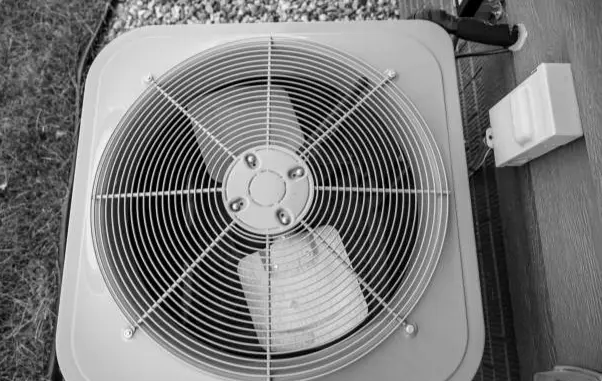Protecting Your Gear: Advanced Cabinet Cooling Solutions for Industrial Applications
In the industrial society where there is a complex system, the stability of machines and their performance is of utmost importance to the successful functioning of the system. The issue of keeping control over temperature in equipment cabinets including control cabinets and server racks is usually underestimated. The performance, speed and life of electronic and mechanical parts are degraded severely by accumulation of heat. It is on this basis that it is imperative to consider appropriate cabinet cooling systems so that the units employ functionality thereby avoiding interruptions. Among the solutions that are considered to be the most popular and efficient, there is the presence of the air cooling fans, and these fans are able to assist in stabilizing the temperature in an industrial area in the best possible manner. Today, in our article, we are going to dwell upon sophisticated cabinet cooling arrangements and see how air cooling fans can protect your equipment.
The Reasons Why Cabinet Cooling Is Indispensable to Industrial Equipment
Industrial equipment is usually used in severe conditions that are characterised by high temperatures, humidity as well as dustiness. There is always a threat of overheating, therefore a safety cabinet cooling is essential. Thermal throttling may cause overheated parts to have a slower processing capability or even break down hardware. Also, the electronic components may wear out after sometime under excess heat and lead to early breakages. The cabinet cooling systems are those that will enhance an ideal internal temperature of sensitive gadgets to enable the components to work without worrying about overheating.
When it comes to maintaining a good temperature in places such as manufacturing plants, telecommunications facilities as well as energy stations, it is not only a performance measure but also about safety. Most systems are made in a way that they should run continuously and too much heat may cause fire hazards or electrical outage. No good cooling within such environments can be overemphasized. Air cooling fans are also the most popular yet economical way of cooling these risk factors and so they form an indispensable part of the industrial cooling systems.
The Process in which the Air Cooling Fans are used in Industries
Air cooling fans are used to generate airflow assisting to remove heat of equipment covers. Such fans will continue drawing cool air surrounding and passing out the heated air within the cabinet hence a constant temperature is maintained. In industrial use the fans employed are broadly classified into axial fans, centrifugal fans or cross-flow fans and each has its own merits depending upon the requirements of the cooling system.
An example is axial fans, which are perfect when one wants to move large quantities of air at low pressure, and hence can be used to cool large enclosures. They are commonly applied to cabinet cooling systems such as telecommunications, industrial equipment. Centrifugal fans on the other hand fare better when there is a need of increased pressure like in case of smaller cabinets or enclosures that have lesser spaces or obstructions. Cross-flow type fans provide a uniform air distribution over the equipment and are common in very tight systems.
Among the greatest benefits of air cooling fans when it comes to cooling cabinets, its energy efficiency has to be mentioned. Fans, when of the right size and choice, maintain good cooling at a reasonable power consumption, so are good to use on a long term basis in industrial settings.
Advantages of Cabinet Cooling Using Air Cooling Fans
There are many advantages associated with the use of air cooling fans in the cooling systems of cabinets and this is why they can be accounted as one of the best and truthful solutions to some of the cooling systems in industries. Energy efficiency is one of the key benefits. Compared to the other types of even more complex cooling systems, such as air cooling liquid cooling, the air cooling fans will consume quite a minimal amount of energy to operate, and due to this fact they will be cost-friendly to use in the long run within the industrial establishment. Also, fans do not require much maintenance unlike other cooling systems, which ensures a reduction of the total cost of operation.
Easy integration is another important advantage. The air cooling fans are easy to incorporate in the already existing enclosures without necessarily making some major modifications. This also makes them suitable as retrofit or upgrades of older systems and an easy way of increasing cooling potential. There is no way any industrial cabinet can be affected in its operations when it comes to adding axial fans and centrifugal fans.
The noise level may also be considered when determining cooling fans. Good quality air cooling fans are made in such a way that the fans run silently therefore the total amount of noise created is minimal. This is significant where very loud sounds might be distractive or disturbing like in an office or research laboratories. When the right choice of fans is adopted, the cabinets’ cooling systems have the opportunity to work with no noise, despite the efficiency of handling the heat.
Last but not least, air cooling fans are very scalable and can be tuned to attain certain cooling needs. Both small-sized cooling-demanding systems that need one fan instead of many and large industrial systems that need high air-conditioning capabilities with several fans will find that the kind of flexibility they need to meet the cooling demands over time will be available with the help of air cooling fans.
Selection of the Proper Air Cooling Fans to meet your Cabinet Cooling Requirements
Selection of air cooling fans used in your cabinet cooling solutions should be based on a proper understanding of cooling needs in your system. The size of the enclosure can be discussed among the first factors to take into account. Bigger cabinets might need the more significant fans that have high airflow rating whereas smaller enclosures might just need small size fans that have medium airflow rating. Fans are also supposed to directly relate to the size and heat load of the equipment inside the cabinet to perform best.
Airflow and static pressure are other crucial factors that should be considered. Greater airflow is required to cool larger systems or those with less resistance, whereas higher static pressure is beneficial in systems with more obstructions, this can be filters, ducts or close fitted equipment. You will also require to make sure that the fan is on the right voltage and power specifications to suit your system.
Also, one should take into consideration the environment that the fans will work in. There are industrial settings that require fans to be coated by dust particles, moisture or extremely hot temperature. Where this is the scenario, one must opt to use the fans with the IP rated enclosures to be well-guarded against dust and water ingress so that the fans can be used in harsh conditions.
Lastly, the noise will be a factor to consider which especially comes in handy in an office setting or where there is a need to have a quiet process. Seek to find air cooling fans that have low decibel ratings which provide quiet cooling performance.
Conclusion
Proper cabinet cooling solutions play an essential role in ensuring that the industrial systems work as expected, especially where temperature control is a critical requirement in equipment operation. An air cooling fan is a significant investment to ensure that the best temperatures are observed within industrial enclosures to ensure that at best the equipment can attain highest performances with minimum chances of overheat and component breakages. You will be using an axial fan, centrifugal fan, or cross-flow fan; the correct fan selection and incorporation of it into your cabinet cooling systems will save your gear, increase the reliability of your systems, and minimize the amount of downtime. With numerous considerations like airflow, static pressure, noise, and environmental conditions, you should be in a position to select a fan that best fits your industrial application, and wherever the cooling requirements are concerned, everything is done efficiently and reliably.
Also Read-How Home Exterior Improvements Influence Real Estate Listings

